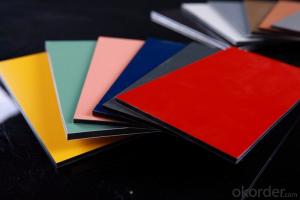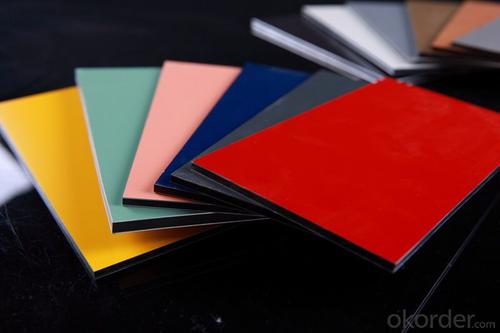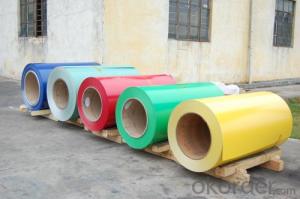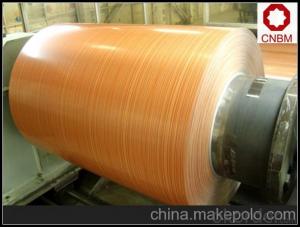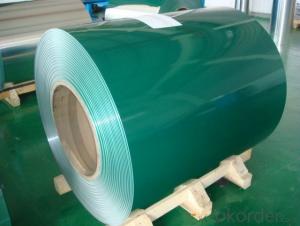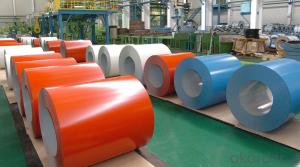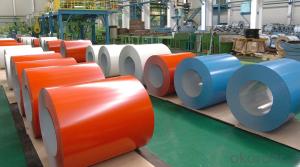Logan Aluminum Coils - Aluminium Prepainted Coil Hot Sale 3105
- Loading Port:
- Shanghai
- Payment Terms:
- TT OR LC
- Min Order Qty:
- 5 m.t.
- Supply Capability:
- 2000 m.t./month
OKorder Service Pledge
OKorder Financial Service
You Might Also Like
Specification
Structure of Aluminium Prepainted Coil Hot Demanded 3105:
Aluminium coil/sheet are of a wide range of specifications, and they are widely used in:Interior: wall cladding, ceilings, bathrooms, kitchens and balconies, shutters, doors...Exterior: wall cladding, facades, roofing, canopies, tunnels,column covers , renovations...Advertisement: display platforms, signboards, fascia, shop fronts...
Main Features of Aluminium Prepainted Coil Hot Demanded 3105 :
1) High gloss
2) High flexibility
3) Impact resistance
4) Excellent weather-proof durability
5) Anti-ultraviolet
6) High erosion resistance
7) Stable color and gloss
8) Good mechanical processing performance
9) Abrasion resistance
Image of Aluminium Prepainted Coil Hot Demanded 3105:
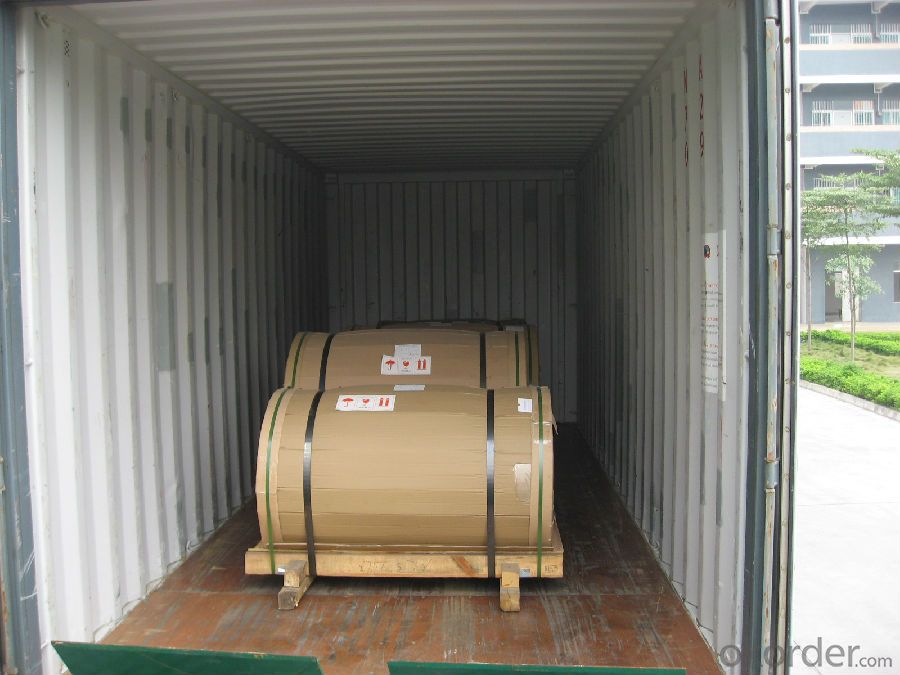
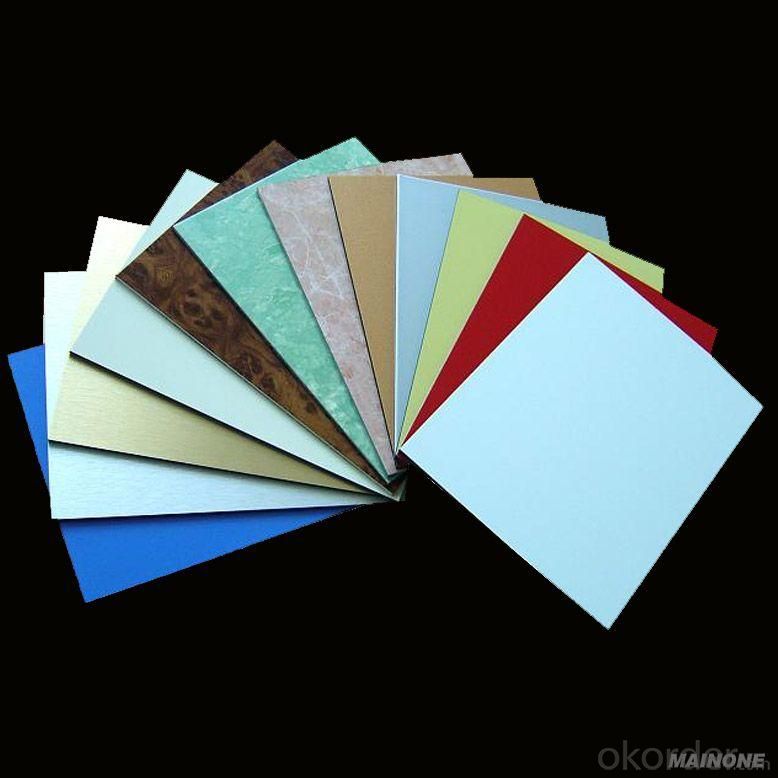
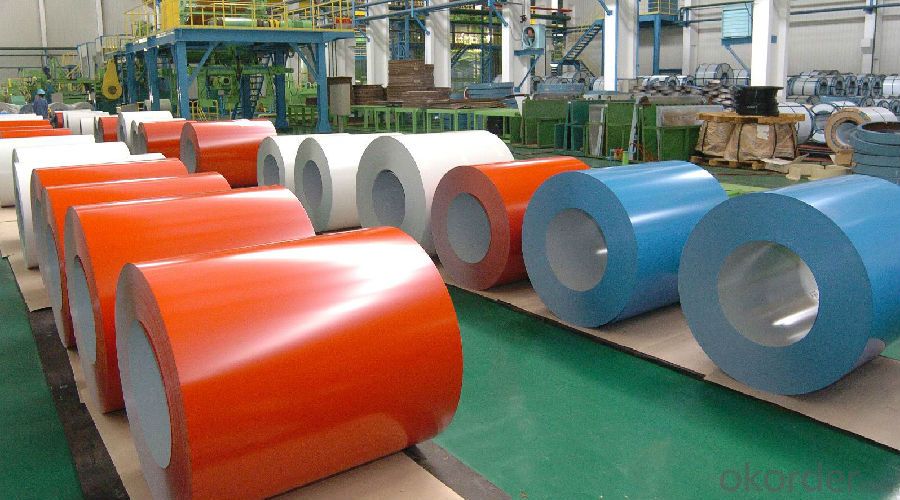
Specifications of Aluminium Prepainted Coil Hot Demanded 3105:
Alloy | A1100,A3003, A8011 etc |
Temper | H16,H18,H26 |
Thickness | 0.02-3.0mm |
Width | Standard width:1200 1240mm |
30mm-1500mm | |
Diameter | Outside dia:1200mm\1000mm\1240 |
Interior dia: 405mm,505mm | |
Weight | 1.5T/coil,2.5 T/coil,3.0 T/coil |
Coating | PE, PVDF, |
Surface | Color coated, Embossed, mill finish, |
Color | As to RAL |
Gloss | 10 - 90%(EN ISO-2813:1994) |
Coating Thickness | P E : more than 18 micron |
PVDF: more than 25 micron | |
Coating Hardness (pencil resistance) | More than 2h |
Coating adhesion | 5J(EN ISO-2409:1994) |
Impact Resistance | No peeling or cracking(50 kg/cm,ASTMD-2794:1993) |
Flexibility (T-bend) | 2T |
MEK resistance | More than 100 |
FAQ of Aluminium Coil:
a.What is monthly capacity
---CNBM is one stated own company and our monthly capacity is about 2000tons.
b. Now which countries do you export your goods?
---Now we export to South East Asia,Africa, North America,South America ect.
- Q: Can aluminum coils be used for signage purposes?
- Yes, aluminum coils can be used for signage purposes. Aluminum is a versatile and lightweight material that is commonly used in the signage industry. It has excellent corrosion resistance, making it suitable for both indoor and outdoor applications. Aluminum coils can be easily cut and formed into various shapes and sizes, allowing for customizable signage designs. Additionally, aluminum is highly durable and can withstand harsh weather conditions, making it a long-lasting option for signage. The coils can be painted or coated with different finishes to achieve the desired aesthetic appeal, while also providing protection against fading and scratching. Overall, aluminum coils are a popular choice for signage purposes due to their versatility, durability, and aesthetic appeal.
- Q: How are aluminum coils protected against chemical exposure?
- Various methods are employed to safeguard aluminum coils from chemical exposure. One prevalent approach involves applying a protective coating or finish to the coil's surface. This coating serves as a barrier, shielding the aluminum from potentially harmful chemicals and preventing direct contact and corrosion. Another technique is anodization, whereby the aluminum surface is treated electrolytically to create a layer of oxide. This oxide layer not only provides excellent resistance against chemical exposure but also enhances the overall durability of the coils. Anodized aluminum coils find extensive use in industries like construction, automotive, and aerospace, where chemical resistance is of utmost importance. Additionally, aluminum coils can be safeguarded by employing specific alloys designed to withstand chemical corrosion. These alloys incorporate additional elements, such as copper or magnesium, which bolster the aluminum's resistance to chemical attack. By carefully selecting the appropriate alloy composition, manufacturers can ensure that the aluminum coils are better equipped to endure chemical exposure. In summary, protecting aluminum coils from chemical exposure necessitates a combination of protective coatings, anodization, and the use of corrosion-resistant alloys. These measures play a vital role in prolonging the lifespan of the coils and maintaining their performance even in harsh chemical environments.
- Q: Are aluminum coils suitable for corrosion-resistant applications?
- Yes, aluminum coils are suitable for corrosion-resistant applications. Aluminum has a natural oxide layer that forms on its surface, which provides excellent corrosion resistance. This oxide layer acts as a barrier, protecting the underlying aluminum from corrosion caused by moisture, chemicals, and other environmental factors. Additionally, aluminum can be further enhanced with various coatings or treatments to improve its corrosion resistance even more. Therefore, aluminum coils are commonly used in applications where resistance to corrosion is crucial, such as in the construction industry, automotive industry, and marine applications.
- Q: What is the lifespan of aluminum coils?
- The durability of aluminum coils is subject to fluctuation due to diverse elements like aluminum quality, manufacturing techniques, environmental circumstances, and upkeep. On average, aluminum coils persist for approximately 15 to 30 years. Yet, with conscientious attention and periodic maintenance, encompassing cleansing and examination, the lifespan of aluminum coils can potentially expand. It is crucial to emphasize that regular maintenance and professional servicing facilitate early detection of any complications, facilitating prompt repairs or replacements, and ultimately elongating the longevity of aluminum coils.
- Q: What are the methods to prevent rust formation on steel coils during storage and transportation?
- <p>To prevent rust on steel coils during storage and transportation, follow these steps: 1. Keep the coils dry and avoid exposure to moisture. 2. Use rust inhibitors or anti-corrosion coatings on the coils. 3. Store the coils in a clean, dry, and well-ventilated area. 4. Use protective wrapping materials like plastic film or corrosion-resistant paper. 5. Ensure proper stacking and avoid direct contact between coils. 6. Use rust-resistant materials for transportation containers. 7. Regularly inspect the coils for signs of rust and address any issues promptly. By implementing these measures, you can significantly reduce the risk of rust formation on steel coils.</p>
- Q: Can aluminum coils be used for electrical enclosures?
- Yes, aluminum coils can be used for electrical enclosures. Aluminum is a commonly used material for enclosures due to its excellent conductivity, lightweight nature, and resistance to corrosion. It provides good protection against electromagnetic interference and can effectively dissipate heat. Additionally, aluminum coils can be easily formed and fabricated into various shapes and sizes, making them suitable for electrical enclosures in different applications.
- Q: Are there any restrictions on the export or import of aluminum coils?
- Yes, there are restrictions on the export or import of aluminum coils. These restrictions can vary from country to country and are typically imposed to protect domestic industries, ensure national security, or comply with international trade agreements. Governments may impose import or export duties, quotas, licensing requirements, or impose restrictions on certain countries for political or economic reasons. It is important to consult the specific regulations and trade policies of the countries involved to understand the exact restrictions in place.
- Q: Roll presented above 1 complete circles are brineling put on work roll after the new rolling, less than 12 volumes in the aluminum surface will be presented in the corresponding position of a straight roller, a roller indentation in the above, check the work roll above a pit. Replace the upper support roll for only a few days. Want to know what's going on?Should not be bearing problems, because the bearings have been used for almost 4 years, it should not be bearing problems, and now they are suspected of bending cylinder seal problems, oil seepage phenomenon.
- For a few days and roll crushed?Whether or not the work roll tilt and the positive and negative camber of the roll are controlled, the work roll is running abnormally, and the backup roller is rubbed.
- Q: How do aluminum coils contribute to energy efficiency in buildings?
- The use of aluminum coils is crucial for improving energy efficiency in buildings. To begin with, aluminum is an extremely conductive material, allowing for efficient heat transfer. This characteristic is particularly important in HVAC systems, where aluminum coils are commonly employed. These coils aid in the transfer of heat between the indoor and outdoor units, enabling effective temperature regulation and decreasing energy usage. Furthermore, aluminum coils are lightweight, making them easier to handle and install. This not only saves time and labor costs but also reduces the overall weight of the HVAC system, resulting in lower energy requirements for operation. Additionally, the lightweight nature of aluminum coils allows for the creation of compact systems, conserving valuable space in buildings. Additionally, aluminum is highly resistant to corrosion, ensuring the long-lasting and durable nature of the coils. This resistance to corrosion is especially vital in areas with high humidity or exposure to harsh weather conditions. By maintaining their effectiveness over time, aluminum coils minimize the need for frequent replacements, thereby reducing energy consumption associated with the manufacturing and installation processes. Another significant advantage of aluminum coils is their recyclability. Aluminum is one of the most widely recycled materials globally, with a high recycling rate and minimal loss of quality during the process. By utilizing aluminum coils, buildings contribute to a more sustainable and environmentally-friendly approach, as the material can be recycled repeatedly without compromising its performance. Moreover, the recycling process requires significantly less energy compared to primary aluminum production, resulting in reduced greenhouse gas emissions. In conclusion, aluminum coils play a crucial role in enhancing the energy efficiency of buildings through their high conductivity, lightweight nature, corrosion resistance, and recyclability. By facilitating efficient heat transfer, reducing energy consumption, and promoting sustainability, aluminum coils play a vital role in improving the energy efficiency of HVAC systems and overall building performance.
- Q: This question asks for the method to measure the dimensions of an aluminum coil.
- <p>To measure the size of an aluminum coil, you'll need to measure its diameter, width, and thickness. Use a tape measure or a caliper to measure the coil's diameter and width. For the thickness, a micrometer or a coil thickness gauge can be used. Ensure the coil is laid flat and measure at several points to get an average thickness. If the coil is wound, you may need to unroll it partially to take accurate measurements. Always follow the manufacturer's guidelines for your specific measuring tools to ensure accuracy.</p>
Send your message to us
Logan Aluminum Coils - Aluminium Prepainted Coil Hot Sale 3105
- Loading Port:
- Shanghai
- Payment Terms:
- TT OR LC
- Min Order Qty:
- 5 m.t.
- Supply Capability:
- 2000 m.t./month
OKorder Service Pledge
OKorder Financial Service
Similar products
Hot products
Hot Searches
Related keywords
